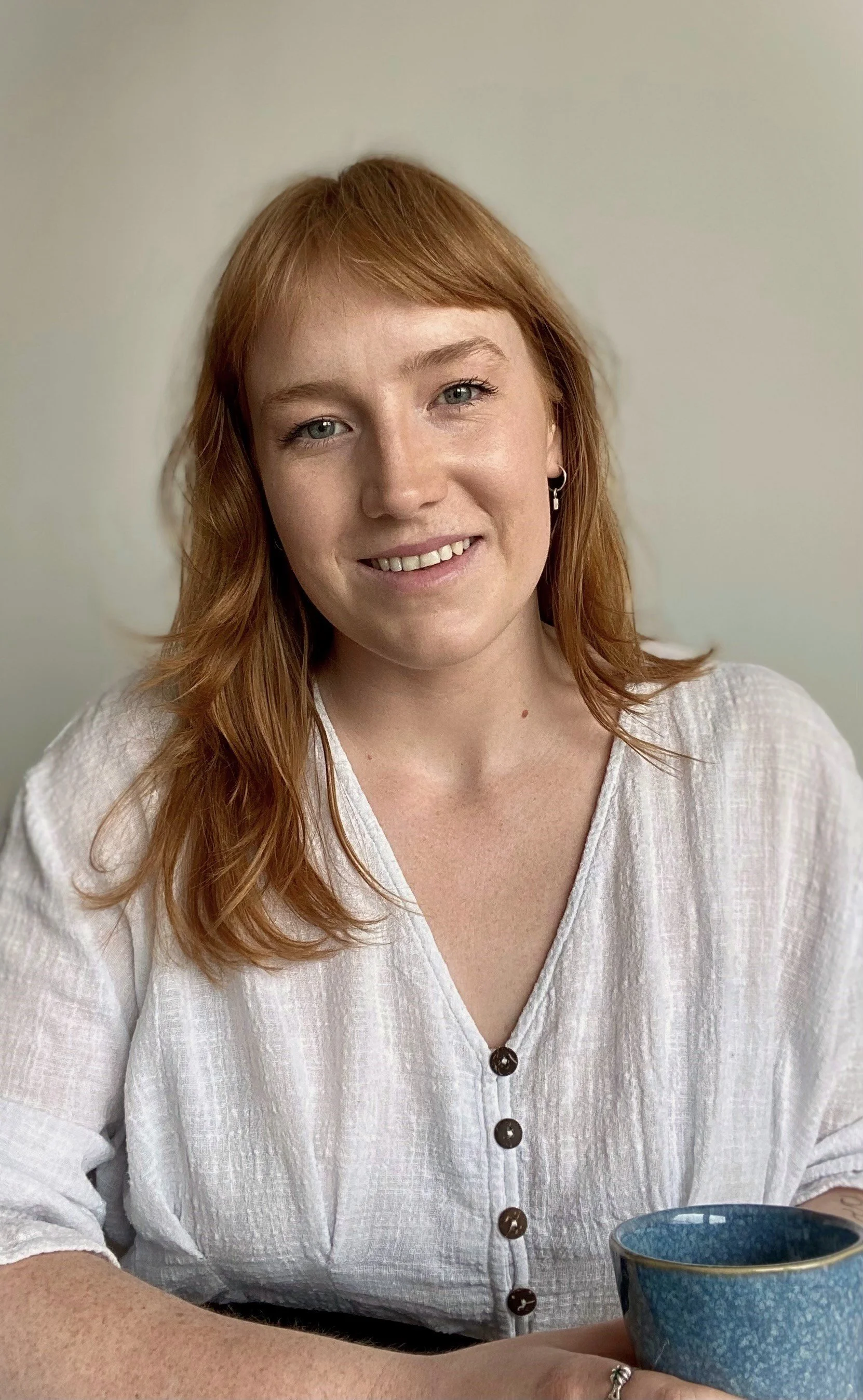About Phoebe Beveridge
Registered Psychologist | Trauma Therapy | Schema Therapy
Emotional safety is a crucial prerequisite for effective therapy. I prioritise creating a therapeutic space where you won't be judged, rushed or dismissed. My approach is grounded in trauma’s effect the nervous system, attachment patterns, and sense of self.
My therapeutic style is warm, attuned, and genuine. I understand that for people with relationship difficulties and past trauma, the therapeutic relationship itself becomes a crucial part of healing—often the first place where you can experience being truly seen and accepted without having to perform or protect yourself.
Qualifications & Experience
I'm a Registered Psychologist with the Australian Health Practitioner Regulation Agency (AHPRA), with experience in complex trauma, eating disorders, and relationship difficulties.
I completed my Bachelor of Psychology (Honours) and Master of Professional Psychology in Australia, then spent recent years in the UK working specifically with adults healing from various forms of relational and developmental trauma. This experience deepened my understanding of how early experiences create lasting patterns and how to work effectively with complex emotional injuries.
I have extensive training in Schema Therapy, which is considered one of the most effective approaches for complex trauma and entrenched patterns stemming from childhood experiences.
I value inclusivity and understand how trauma intersects with identity, culture, and systemic oppression. I have experience working with individuals from the LGBTQIA+ community, people with varying abilities, and those from culturally and linguistically diverse backgrounds.
What I bring to this trauma-informed work:
Deep understanding of how relational trauma affects development and adult functioning
Extensive training in approaches specifically designed for complex trauma and eating disorders
Warm, attuned therapeutic style that doesn't retraumatise or overwhelm your system
Recognition that healing happens in relationship—you won't heal these wounds in isolation
Commitment to addressing root causes rather than just managing symptoms
How We Work Together
Schema therapy requires a different approach than traditional talk therapy. We work at your pace, honouring your both your need for change and for safety. Some sessions might focus on understanding your patterns, others on processing specific experiences, and many on simply building the internal resources you need to heal.
Our work together will help you understand not just what happened in your life, but how those experiences created lasting changes in your brain, nervous system, and relational patterns. Most importantly, we'll work together to heal these deep wounds so you can finally experience the safety, connection, and authenticity you've been seeking.
This is therapy for people who understand that their current struggles have deeper roots and are ready to do the meaningful work of healing from the inside out.
Schema Therapy:
Understanding Your Different Parts
I work primarily from a Schema Therapy approach, which was specifically developed for complex trauma and entrenched patterns that stem from childhood experiences. This approach recognises that we all develop different "modes" or parts of ourselves as adaptations to difficult experiences.
These parts developed as sophisticated responses to situations where you needed protection, but they may now be creating difficulties in your adult life.
Common trauma-related modes we work with:
The Vulnerable Child Mode: The part that holds your original pain, unmet needs, and core emotional wounds
The Angry Child Mode: The part that feels anger about what happened to you or what you didn't receive
The Detached Protector Mode: Emotional shutdown that kept you safe but now creates distance in relationships
The Compliant Surrenderer Mode: People-pleasing patterns that avoided conflict but led to losing yourself
The Self-Soother Mode: Ways of numbing or escaping that provided relief but may now cause problems
The Punitive Parent Mode: The internalized critical voice that attacks you the way others once did
Through this work, we gradually strengthen your Healthy Adult mode—the part of you that can hold space for all your experiences with compassion, respond to situations with clarity and choice, and create secure relationships where you can be authentically yourself.
The goal isn't to eliminate your protective parts, but to:
Understand why they developed and honor their protective function
Heal the underlying wounds they've been guarding
Help them relax their hypervigilance as you build internal safety
Integrate them in healthier ways that serve your adult life
Ready to Begin?
If you're ready to understand how your past experiences continue to influence your present and want to heal from the deeper wounds that drive your patterns, reach out today.
I offer a 15-minute phone consultation to explore whether we might work well together.
Practice capacity is limited. Referrals are welcomed.

